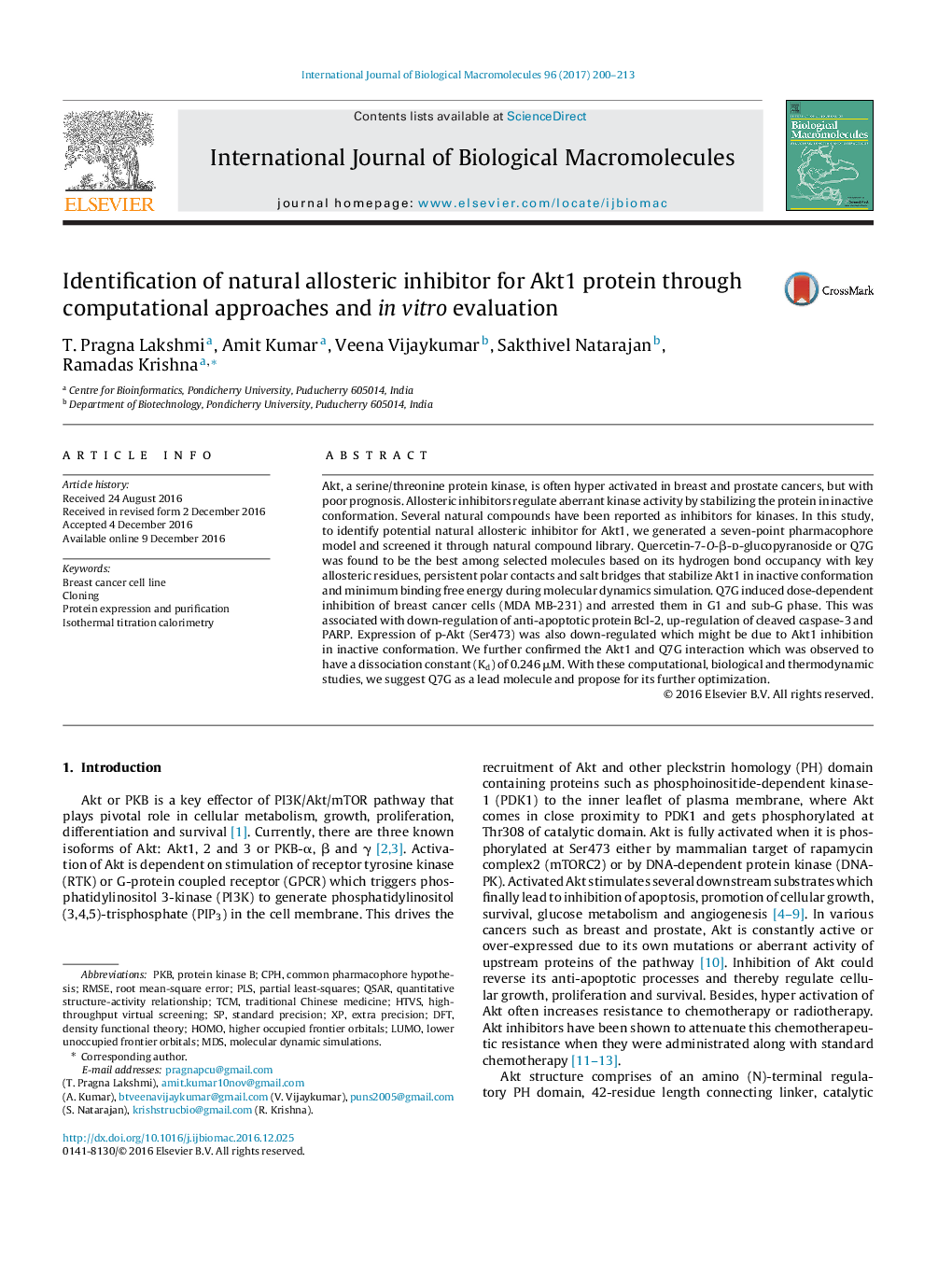| Article ID | Journal | Published Year | Pages | File Type |
|---|---|---|---|---|
| 5512177 | International Journal of Biological Macromolecules | 2017 | 14 Pages |
â¢Q7G was identified as natural allosteric inhibitor for Akt1 by performing in silico studies.â¢It induced apoptosis, decreased p-Akt (Ser473) expression and arrested breast cancer cells in sub-G and G1 phase.â¢Thermodynamic results provided the binding affinity of Q7G with Akt1.
Akt, a serine/threonine protein kinase, is often hyper activated in breast and prostate cancers, but with poor prognosis. Allosteric inhibitors regulate aberrant kinase activity by stabilizing the protein in inactive conformation. Several natural compounds have been reported as inhibitors for kinases. In this study, to identify potential natural allosteric inhibitor for Akt1, we generated a seven-point pharmacophore model and screened it through natural compound library. Quercetin-7-O-β-d-glucopyranoside or Q7G was found to be the best among selected molecules based on its hydrogen bond occupancy with key allosteric residues, persistent polar contacts and salt bridges that stabilize Akt1 in inactive conformation and minimum binding free energy during molecular dynamics simulation. Q7G induced dose-dependent inhibition of breast cancer cells (MDA MB-231) and arrested them in G1 and sub-G phase. This was associated with down-regulation of anti-apoptotic protein Bcl-2, up-regulation of cleaved caspase-3 and PARP. Expression of p-Akt (Ser473) was also down-regulated which might be due to Akt1 inhibition in inactive conformation. We further confirmed the Akt1 and Q7G interaction which was observed to have a dissociation constant (Kd) of 0.246 μM. With these computational, biological and thermodynamic studies, we suggest Q7G as a lead molecule and propose for its further optimization.
